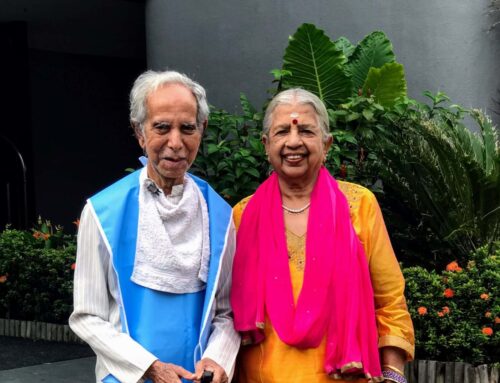Compromise may prove to be key for Starbucks in India
I have to admit that when I heard Starbucks was coming to India, my heart sank. It’s not that I don’t like their coffee. I do.
I think calling sizes “venti” and “grande” in the English-speaking US is pretentious, but it has turned out to be a successful marketing move. I like Starbucks’ stores — the smell of coffee, the deep armchairs and the spiky-haired waiters. While living in New York, I pretty much wrote all my feature articles settled on the purple leather couch at the Starbucks on Broadway near Lincoln Center. It is just the sameness of it that I (and pretty much every member of the ihatestarbucks.com site) object to.
Being southern Indian, I am not a tea drinker. The state of Tamil Nadu, where I come from, is home to arguably the best coffee in the country. I am rightfully proud of the filter coffee that scents Tamil homes every morning. We don’t use a French press, a Jura coffee maker, or an espresso machine. We use what is called a “filter”. I have a set of antique brass ones that my grandmother used, but these days we use stainless steel vessels – two cylindrical containers, one atop the other. This simple contraption gives us a divinely thick concoction, which we then mix with frothing hot milk, and just enough sugar to remove the bitterness but do nothing to the taste. This is filter coffee, south Indian style, drunk at eateries all over the two southern states of Tamil Nadu (where I grew up) and Karnataka (where I now live).
In Bangalore, humble restaurants, called “darshinis”, serve “by-two” coffee in stainless steel tumblers. This is the normal portion divided by two, which works out to be the size of an espresso shot. People finish their morning walk and pour down the hot caffeinated brew before heading home. This is ritual; this is tradition. No wonder we are so possessive about our coffee.
Legend has it that the saint Baba Budan stole six seeds of coffee from Yemen and brought it to India wrapped in his knapsack. He scattered the seeds in the hills that now bear his name, and the Baba Budan hills are the birthplace of Indian coffee. Cafe Coffee Day, the home-grown, upmarket retail coffee chain, owns hundreds of thousands of acres in this area. Until now, it didn’t have much competition.
Last week, Starbucks signed a non-binding memorandum of understanding (MoU) with Tata Coffee, a move that came after it explored similar partnerships with other local players. The looseness of the agreement has Tata Coffee on the defensive, but both Howard Schultz, the chief executive of Starbucks, based in Seattle, and RK Krishna Kumar, the chairman of Tata Coffee, stressed that the MoU would give them several avenues to explore in terms of partnerships. The first move on the agenda seems to be sourcing green coffee from Tata Coffee’s estates and roasting the beans at its world-class Kushalnagar facility. Although Starbucks has been sourcing coffee from India for its 16,000 stores in 50 countries, it has not marketed Indian arabica beans as a brand, something that might change. The second option is trickier: opening Starbucks retail stores in India. The company has traditionally used the franchisee model that Tata is averse to. Some kind of compromise will have to be struck, but both companies said they were weighing opening the first Starbucks coffee possibly later this year.
The market approved. Tata’s shares rose 20 per cent after the announcement, the largest surge in four and a half years for Asia’s largest publicly traded coffee grower.
Although India is largely a tea-drinking nation, government figures show that coffee consumption has more than doubled to 94,000 tonnes in the past decade, thanks in part to a growing cafe culture and a youthful demographic that prefers flavoured, stylish coffees to the traditional kind. As analysts say, coffee is a child of the economy; and as India’s economy grows, so does the drinking of coffee. For all these reasons, India is a big market for Starbucks. In China, the company plans to have open a total of 1,500 retail outlets in the next five years from its current 400. Can the same growth be repeated in India? Hard to say, given its tight regulatory environment. Currently, a foreign retail chain selling one brand of goods can own only 51 per cent of its Indian operations, while those that sell more than one brand cannot own any. Starbucks says it plans to go ahead with its India operations, in spite of these constraints, by forming partnerships.
Since Bangalore is where Tata Coffee has its headquarters, I am pretty sure Starbucks’ first outlet will open in this city. Cafe Coffee Day, its biggest competitor, also has its headquarters there, with outlets all over the city. For coffee drinkers, the face-off should be interesting.
While it is unlikely that Starbucks will change its retail model, I have a personal request for Mr Schultz: please include south Indian filter coffee in your menu. Just as McDonald’s in India serves its McAloo Tikki with much success, adding filter coffee to the usual macchiatos will bring us filter coffee snobs into your outlets in droves. Cafe Coffee Day, by the way, doesn’t sell south Indian filter coffee, something I’ve always considered odd.
Shoba Narayan is a journalist based in Bangalore and the author of Monsoon Diary





Leave A Comment